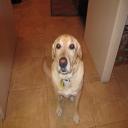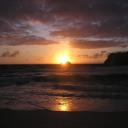Yahoo Answers is shutting down on May 4th, 2021 (Eastern Time) and the Yahoo Answers website is now in read-only mode. There will be no changes to other Yahoo properties or services, or your Yahoo account. You can find more information about the Yahoo Answers shutdown and how to download your data on this help page.
Trending News
Is n't the ocean such a big thing?
The ocean is such a big thing. I have read that water occupies two thirds of earth's surface. I could comprehend it.
The earth is such a big thing. I have read that Sun is 100 times larger than the Earth. I could comprehend it.
The universe is such a big thing. No one can tell whether it is finite or infinite. It is, at least, beyond my comprehension.
I am a teacher with a doctorate degree. I can not comprehend my own mind. The more I know about it, I will come to know that there is more about it.
In Latin, the aphorism "Know thyself" is generally given as nosce te ipsum. In Charmides (dialogue), Plato has Socrates lead a longer inquiry as to how we may gain knowledge of ourselves.
“Wisdom begins with wonder,” said Socrates. Through dialogue, he led his audience to passionate inquiry of existence and identity. In his mind, one could not know anything without knowing one’s self. Thus, the Seven Sages of Greece, who had inscribed "know thyself" in the forecourt of the Delphic oracle a few generations before Socrates, had challenged all subsequent philosophers to attain self-knowledge before knowing anything else.
In 1750 Benjamin Franklin, in his Poor Richard's Almanack, observed the great difficulty of knowing one's self, with: "There are three Things extremely hard, Steel, a Diamond, and to know one's self."
9 Answers
- 9 years agoFavorite Answer
"Doubt grows with knowledge" - Johann von Goethe
This is particularly true when you're trying to understand something that is so ambiguous as the Universe or yourself. These are matters that you can't really conclude anything about it, since they are things that transcend the human mind and even science. The real purpose of knowing is to explore, search and discover, and this way fulfilling one of the reasons why you live. That is to say, by knowing, you thank your life.
And necessarily, by knowing more and more, you realize that you are still to learn even more. I remember reading something Socrates said, that the real sage is the one who admits he is still ignorant.
Hope it helped.
Source(s): Myself, some books I read, and also some great teachers I had. - ?Lv 69 years ago
The ocean is a marvellous entity indeed.
It doesn't care that you have a doctorate degree.
It wants to know if you've experienced it's power and it's force. If you've felt it's calm, it's warmth and known it's icy depths.
It requests your understanding, and that can only be given through experience. You don't comprehend the ocean at all, until you can feel it, be one with it, argue with it, and play with it.
If you can meet the ocean, and merge with it, you will you know your own mind just a little bit better. And then you can tackle experiencing the planets and the universes and so on.
:)
Cheers!
- 9 years ago
Where is your question then? Did you want to teach us something? Sigmund Freud started to know himself by trying to understand the meaning of his dreams as you may know. This has been proven to be a scientific method I guess. Although it surely is hard task to do, but it seems to be the only scientific method with resources available at present.
- glenn123Lv 79 years ago
Yes. It's all about perception and perspective. In many ways, we can equate our mind with the universe; both being more alien and unknown than familiar.....at least for me.
- Anonymous9 years ago
That's deep, man. Real deep.




